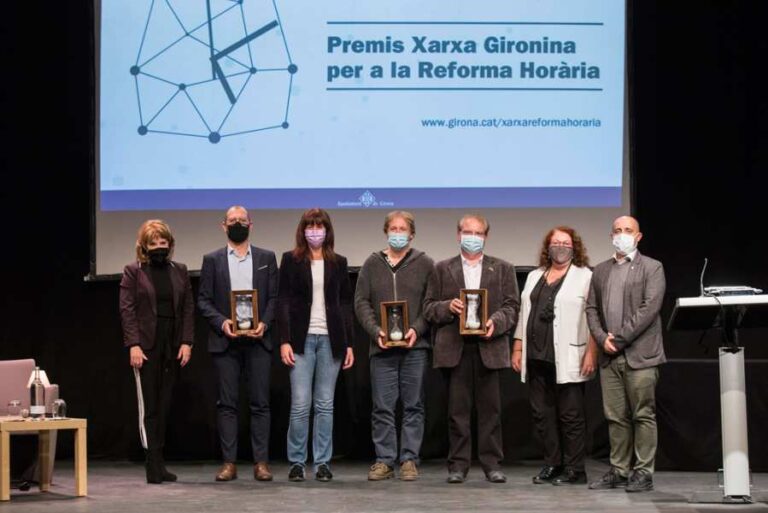Network for Time Use Reform in Girona


The Network for Time Use Reform in Girona (officially, “Xarxa Gironina per la Reforma Horària”) is an initiative born in 2016, promoted by the Girona City Council, and composed by companies committed to promoting the time reform. Within the framework of the Economic Promotion Agency, this project aims at facilitating a new time organisation — one that promotes a work-life balance, which results in an increase of productivity. Such measures benefit both companies and workers, and improving the city’s quality of life.
The Network’s focus is employees’ health, which is achieved through more rational and human schedules, and organisations that are more productive and flexible. Currently, it has more than 60 member organisations from different sizes and productive sectors —such as metallurgy, tourism, NGOs, pharma, or food, among others. The Network has collected good practices regarding time use organisation in companies and associations, such as value-led and goal-oriented management, schedule flexibility, productive meetings, or healthy mealtimes. In order to promote values requires for a time use reform, the Network organises trainings and experience exchanges. It also organises Girona’s Network prizes for Time Use Reform, awarding three categories: healthy habits, equality and work-life balance, and efficiency.
Girona Time Agreement
Starting in 2019, the City Council promoted the Time Agreement at the city level, with the goal of defining specific measures that facilitate a new time organisation: it aimed at improving citizen’s health and balance between different time uses (labour, personal, family, and “social” time). To that end, several good practices have been identified, as well as the key challenges in terms of time in the different areas of the city:
1. Health
With measures attempting to:
- Promote earlier bedtime.
- Recover missing sleep hours.
- Reduce worker’s stress, especially women.
- Define healthy mealtimes.
2. Organisations
With measures attempting to:
- Increase the number of agreed labour flexibility mechanisms.
- Increase of teleworking.
- Decrease of company’s lunchtime break to a maximum of one hour.
- Promote earlier end of the working day.
- Increase of organisations’ competitiveness.
- Decrease of unjustified labour absences.
- Implementation of compensation mechanisms based on time.
- Increase of workers eating at a healthy time.
3. Public services
With measures attempting to:
- Increase the use of digital administration tools.
4. Education
With measures attempting to:
- Include lunch within high school schedules.
- Promote an earlier start of extracurricular activities.
- Promote a latter end of higher education schedules.
5. Shopping and consumption
With measures attempting to:
- Increase compact schedules amongst shops.
- Consolidate responsible consumption schedules.
6. Mobility
With measures attempting to:
- Decrease commuting times.
- Reduce accidents in itinere.
- Increase public transport on peak hours.
TUI's role in the project
The TUI acted as a technical advisor and promoter of time use reform in Girona, with the different projects the City Council had on the topic. Specifically, it advised on some project’s inception, coordinated project’s development, and promoted time organisation broadly within the city landscape and different actors.






